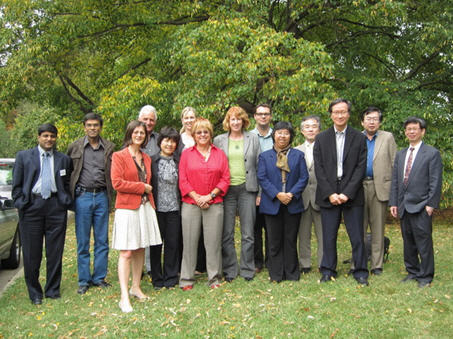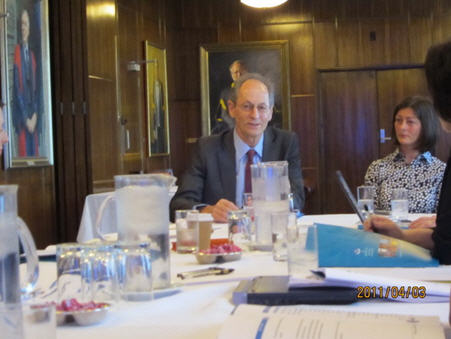Thailand’s Social Inequity Reduction Network (SIRNet), led by the National Health Commission Office, joined the 2nd Regional Steering Group of the Global Action for Health Equity Network in Asia Pacific (AP-HealthGAEN) during 4-5 April 2011, in Canberra, Australia, to review progress on the AP-HealthGAEN workplan, especially the production of an Asia Pacific report on health equity.

AP-HealthGAEN is a regional alliance for health equity through action on Social Determinants of Health (SDH). It has been established to build on the momentum, expertise and partnership generated through the WHO Commission on SDH. A central focus of AP-HealthGAEN’s activity for 2011 is the production of an Asia Pacific report on the social and environmental determinants of health inequity, in time for the World Conference on Social Determinants of Health in Brazil in October 2011.
The regional steering group shapes the direction of the said report as a preliminary review of
the social and environmental issues likely to affect health inequities across the Asia Pacific region, identify gaps in the knowledge base, point towards examples of what can to done to improve health equity based on existing policy and practice, and use the evidence to highlight some of the policy challenges to health equity across the region. It is not an attempt to repeat the CSDH nor will it be a comprehensive review of everything that exists across the region.
Sir Michael Marmot, the former chair of the WHO on CSDH, shared his reflections on what has happened since the CSDH at a high level policy round table on advancing health equity in Asia Pacific. There have been a number of tangible outcomes, including:
- The creation of HealthGAEN
- The WHA Resolution on SDH, with a requirement for the WHO DG to report back on actions
- The WCSDH to be held in October 2011, co-hosted by WHO and Brazil
- Strong interest on SDH and health equity from WHO EURO (from new RD) – inviting MM to conduct Euro review on SDH
- UK Marmot review – which although released into similar political climate as Black Report, appears to be having more impact. The new government has issued a whole-of-government public health white paper as an explicit response to MR, placing health inequalities at the centre, and accepting 5/6 recommendations
- UK 2011 monitoring report – local government, put health inequalities at the centre
- Michael Marmot’s Presidency of the BMA – as a platform to get medical professionals and colleges involved in SDH/HE
- Other specific activities in countries or sub-regions of countries (eg South Australia, Norway, Denmark, Slovenia, Brazil, Chile, Sri Lanka India and Thailand)

Thailand has formed Social Inequity Reduction Network (SIRNet), after the World Health Assembly’s resolution on health equity through action on social determinants of health (SDH) in 2009. Led by the National Health Commission Office, International Health Policy Program, Health System Research Institute, Thai Health Foundation and Social Research Institute of Chulalongkorn University, SIRNet aims to synergize the effort of health and non-health sector to reduce health inequity with the initial emphasis on four target population groups – the disabled, woman, informal labour, and farmer.
Source:
NHCO Press release on 10 April 2011
